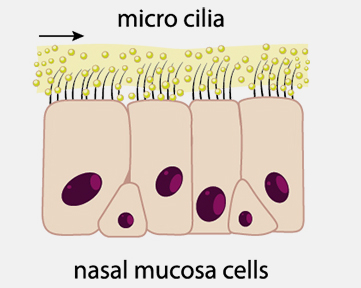
The sinuses (paranasal sinuses) are air-filled spaces in your skull that surround your nasal cavity.There are four sets of sinuses in your skull:
- Maxillary sinuses
- Frontal Sinuses
- Ethmoid Sinuses
- Sphenoid Sinuses
They are all named from the bone from which the sinuses lie and are joined to your nasal cavity by small orifices called ostia.
These sinus cavities are lined with a thin mucus membrane (ciliated pseudostratified columnar epithelium) and cilia – which act like microscopic hairs.

They function to sweep out dirt, germs, pollen and dust. Mucus then drains out the ostia where you then either remove these particles by blowing your nose or by swallowing the mucus. This aids your immune system by preventing unwanted germs and debris from entering your lungs and body.

In your nasal cavity you also have ridges that are called turbinates, which act to humidify and filter the air you breathe.

Obstructions to the mucus drainage in your sinuses can cause all the germs, mucus and debris to sit in your sinus cavity and could lead to a sinus infection.
